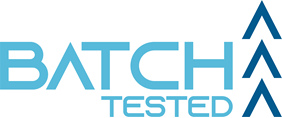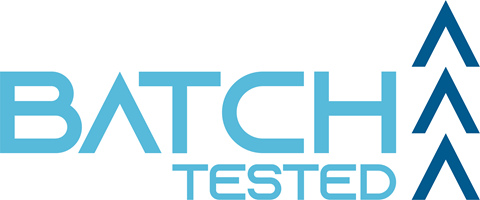There are a lot of misconceptions around fat, from both health and performance perspectives. Fat is typically thought of as the fat we store, but fats also play important roles in cellular functions, hormone health and more. Some fats, or what we call the healthy fats, are essential for helping the body to function optimally and need to be obtained from the diet because our body can’t produce these.
What are omega-3s?
Omega-3 fatty acids are essential polyunsaturated fatty acids. Essential means that our body cannot make omega-3s on its own, so we need to consume them in the diet.
The 3 main omega-3 fatty acids we’re talking about are:
- Docosahexaenoic acid (DHA)
- Eicosapentaenoic acid (EPA)
- Alpha-Linolenic acid (ALA)
Each of these omega-3 fatty acids (O3FA) have slightly different roles and benefits in the body. The majority of benefits relating to performance are associated with EPA and DHA because ALA, which is found in plant-based foods, needs to be converted to EPA and DHA in the body where the rate of conversion is relatively low. EPA and DHA are more readily absorbed in the body and are primarily found in marine-based sources including salmon, tuna and other fatty fish.
Omega-3 fatty acids are a key component of the body’s cells, known as the cell membrane phospholipid bilayer, which means that these fatty acids can have an influence across most tissues in the body. Studies have linked omega-3 fatty acid serum levels with:
- Improvements to eye health
- Risk of and symptoms of depression and anxiety
- Brain health
- Heart health
- Risk of developing Alzheimer’s disease
- Inflammation management
- Joint health
- Muscle protein synthesis during periods of immobilisation and energy restriction
- Potential prevention and treatment of concussion symptoms
What are the benefits of taking omega-3 supplements?
Athletes may have higher requirements for O3FA based on the relationship between O3FA and inflammation, particularly when training volumes are high or during injured states. Specific intake recommendations have not been set for the athlete population compared to the general population, where a combined intake of 500-600mg of EPA + DHA is generally recommended per day (at a minimum). Supplementing with omega-3 fatty acids may be necessary for many athletes, particularly those who don’t meet their requirements through food alone. In a number of studies (Ritz et al., 2020), a large proportion of athletes whose diet intakes and blood O3FA levels were analysed were found to have low O3FA status. Given the importance of O3FA in many areas of health and in particular recovery, this provides important data to suggest that many athletes may need to supplement to meet their daily needs.
From an athlete perspective, consuming 1000mg of combined EPA + DHA O3FA supplements has been linked to reduced physiological strain, better management of exercise-induced inflammation, and during immobilisation (such as injury) it could potentially help in reducing muscle loss. Other benefits found in research include:
- After intense exercise, muscle soreness due to damage often occurs, and is associated with an increase in particular inflammatory markers. Although inflammation is a key process involved in repair and rebuilding, omega-3 supplementation has been shown to accelerate the recovery process through improving markers of inflammation when consumed consistently over a number of weeks, helping to keep inflammation at manageable levels.
- Omega-3 fatty acids may also have a neuroprotective effect due to the structural role of DHA in the brain. In American football players, it has been observed that DHA in brain cells may assist faster recovery after brain trauma (concussion) which could then counteract long-term negative side effects. DHA is involved in mitigating the ‘energy crisis’ that occurs in the brain after concussion. Prior adequate levels of EPA and DHA seem necessary to reduce the severity of symptoms, and a further increase in the dose of DHA could be beneficial at the onset of a concussion.
How much omega-3 does an athlete need?
Currently, there are a range of sources citing different amounts of omega-3 to aim for in both the general population and for athletes. The Australian Institute of Sport summarises the current evidence for fish oil consumption in athletes below:
- For non-fish eaters, with likely low omega-3 status, supplement with 1000mg or more per day of EPA + DHA to optimise omega-3 status within 4-6 weeks
- For irregular fish eaters, with likely intermediate omega-3 status, supplement daily with 500-600mg of EPA + DHA in combination with omega-3 rich foods where possible
- For regular/weekly fish eaters, whose omega-3 status is likely at optimal levels, continue to supplement 500-600mg per day of EPA + DHA in combination with omega-3 rich foods.
- During periods of higher training loads, increased inflammation and injury, up to 2000mg of EPA + DHA may be required to rapidly increase circulating EPA + DHA levels in the short-term and assist with recovery, muscle mass maintenance and management of inflammation. During these periods, discuss your needs with your Sports Dietitian
What should I look for in an omega-3 supplement?
Most commonly, omega-3 is found in fish oil capsules or oils. The dose of EPA and DHA will vary between brands. Omega-3 can also be found in krill oil tablets, and sourced from algal oil for those on vegan or vegetarian diets. It is recommended to take fish oil capsules at the same time as food to maximise EPA and DHA digestion and absorption.
Depending on your needs, as above, look for a supplement that contains the optimal amount of combined EPA and DHA for your needs (i.e. at minimum 500mg, up to 1000-2000mg for a non-fish eater or during an injured state). Ensure that any supplement you choose is batch tested through Informed Sport or HASTA, and speak with your Sports Dietitian who can assess your diet and your training loads to assess your need for supplements and the best dose/strategy for you.
References:
- gov.au. March 2021. [online] Available at: <https://www.ais.gov.au/__data/assets/pdf_file/0004/1000111/36194_Sport-supplement-fact-sheets-Fish-oil-v3.pdf> [Accessed 17 September 2021].
- Oliver JM, Anzalone AJ, Turner SM. Protection Before Impact: the Potential Neuroprotective Role of Nutritional Supplementation in Sports-Related Head Trauma. Sports Med. 2018;48(Suppl 1):39-52. doi:10.1007/s40279-017-0847-3
- Pu H, Guo Y, Zhang W, et al. Omega-3 polyunsaturated fatty acid supplementation improves neurologic recovery and attenuates white matter injury after experimental traumatic brain injury. J Cereb Blood Flow Metab. 2013;33(9):1474-1484. doi:10.1038/jcbfm.2013.108
- Ritz PP, Rogers MB, Zabinsky JS, et al. Dietary and biological assessment of the omega-3 status of collegiate athletes: a cross-sectional analysis. PLOS One. 2020;15(4):1-16.










